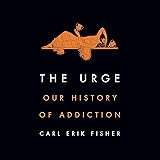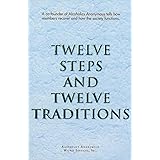The accompanying video boldly challenges our conventional notions of self-improvement, suggesting that personal development no longer needs to be an exercise in guesswork. Instead, it posits a future where growth is guided by real-time, intelligent feedback. This transformative vision, central to the discussion in Chapter 3 of “AI for Personal Development,” heralds a new era where technology actively shapes our reflective processes, delivers precise nudges, and facilitates genuine breakthroughs.
Traditional approaches to personal growth, while valuable, frequently struggle with subjective assessment and a lack of dynamic responsiveness. Individuals often embark on self-improvement journeys armed with generic advice or anecdotal evidence, making consistent progress an arduous task. This often leads to plateaus or a sense of stagnation, as the underlying mechanisms of change remain elusive without objective, continuous monitoring.
The Limitations of Traditional Personal Growth Paradigms
For decades, personal development relied heavily on introspection, goal setting, and habit formation, often without the benefit of empirical, real-time data. This reliance on subjective self-reporting and infrequent feedback loops can obscure critical patterns in behavior and thought. Consequently, identifying effective interventions and sustaining motivation becomes a significant challenge for many dedicated individuals.
Without objective data, understanding the true impact of various strategies or recognizing subtle shifts in one’s psychological state remains difficult. Professionals often advise clients based on generalized principles, which may not account for the unique intricacies of an individual’s neurophysiology or contextual stressors. This lack of personalized, empirical guidance can contribute to high attrition rates in self-improvement initiatives, where initial enthusiasm wanes as progress becomes less tangible.
AI as the Catalyst for a Dynamic Personal Development Framework
The integration of Artificial Intelligence fundamentally redefines the landscape of personal growth, shifting it from a static, reactive process to a dynamic, proactive framework. AI introduces an unparalleled capacity for data analysis, enabling the creation of a truly “living, breathing” system for self-improvement. This revolutionary approach moves beyond simple tracking, instead focusing on adaptive strategies derived from complex behavioral patterns.
Through advanced machine learning algorithms and predictive analytics, AI can construct sophisticated behavioral models specific to each individual. These models consider a multitude of data points, transforming raw information into actionable insights. This capability ensures that growth is not just observed but actively engineered, tailored precisely to an individual’s evolving needs and capabilities.
Leveraging Real-Time Feedback and Data-Driven Insights
AI’s core strength in personal development lies in its ability to provide instantaneous, objective feedback that transcends human cognitive biases. Imagine a system that synthesizes data from your digital calendar, communication patterns, activity trackers, and even subtle linguistic cues in journal entries. This comprehensive data stream allows AI to pinpoint factors influencing productivity, mood, or cognitive function with unprecedented accuracy.
Studies indicate that feedback loops, when integrated consistently, can elevate learning efficiency and behavioral adaptation by as much as 30% compared to sporadic review. AI facilitates this by identifying specific triggers for unproductive habits or highlighting peak performance times. Such data-driven insights eliminate the guesswork, offering a clear, empirical basis for strategic adjustments in personal development plans.
Intelligent Nudges: Precision Guidance for Optimal Growth
Beyond mere feedback, AI excels at delivering intelligent nudges—subtle, personalized prompts designed to steer behavior towards desired outcomes without explicit commands. Drawing heavily from behavioral economics, these nudges are context-aware and strategically timed. Unlike generic reminders, AI-powered nudges leverage insights into an individual’s unique routines and cognitive architecture.
For instance, if AI detects a pattern of declining focus after a certain period, it might suggest a micro-break or a specific mindfulness exercise. Research in applied behavioral science often highlights that highly personalized interventions, or “nudges,” can increase desired behavior adoption by 2x to 5x compared to generalized directives. This precision guidance ensures that interventions are not only relevant but also highly effective in fostering sustained growth and habit formation.
The Power of AI-Enhanced Reflection and Breakthroughs
Reflection is a cornerstone of personal development, yet it often falls victim to human memory biases and incomplete self-assessment. AI transforms this process by acting as an impartial, comprehensive aggregator of your experiences and responses. It can analyze vast quantities of your textual and behavioral data, identifying recurring themes, emotional fluctuations, and progress toward long-term goals.
By correlating disparate data points—such as sleep quality with decision-making efficacy, or social interactions with emotional regulation—AI can illuminate previously unseen connections. These synthesized insights empower individuals to achieve genuine “breakthroughs,” often revealing the root causes of challenges or uncovering latent strengths. This data-driven reflection fosters a deeper, more accurate understanding of self, moving beyond superficial introspection to profound self-discovery and cognitive re-framing.
Architecting Your AI-Powered Growth Ecosystem
Integrating AI into your personal development journey involves more than just downloading an app; it requires architecting a cohesive ecosystem. This might include AI-powered journaling platforms that analyze sentiment and thematic patterns, smart goal-setting tools that dynamically adjust objectives based on performance, or personalized learning pathways that recommend resources tailored to skill gaps identified by your data. The goal is to create a symbiotic relationship where human intentionality guides AI, and AI enhances human capability.
Ethical considerations, such as data privacy and algorithmic bias mitigation, are paramount in this ecosystem. Developers and users must ensure that AI tools are designed to empower, not to manipulate, and that user data is handled with the utmost security and transparency. The true potential of AI in personal development is realized when it acts as a trustworthy co-pilot, augmenting human wisdom with computational intelligence.
The Future is Now: Embracing AI for Personal Development
The era of guesswork in personal development is rapidly concluding. We are transitioning into a sophisticated landscape where AI offers unparalleled opportunities for self-optimization, providing real-time feedback and intelligent nudges that foster profound breakthroughs. This shift empowers individuals to take unprecedented control over their growth trajectories, moving beyond traditional methods that often yield inconsistent results.
By embracing the transformative potential of artificial intelligence, we can unlock new levels of personal insight and accelerate our journey toward human potential. The framework outlined in “AI for Personal Development” provides a comprehensive guide for navigating this exciting frontier, offering a blueprint for a future where growth is not just aspired to but systematically engineered.








